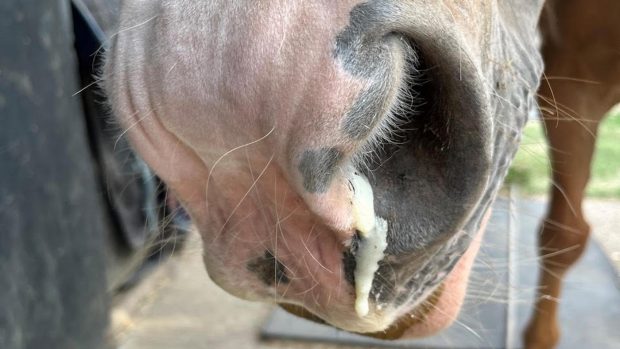After 24 outbreaks of equine flu in the past few months, vets are urging horse owners to be vigilant and vaccinate.
The Animal Health Trust (AHT) told H&H that since the two September outbreaks in Cornwall and West Sussex, there have been 22 confirmed outbreaks in England and Scotland.
The highly contagious virus is spread via coughing horses and nasal discharge, as well as via feed, water, buckets, clothing, tack and equipment.
Owners are warned to ensure their horses vaccinations are up to date — it is estimated by vets that only around 40% of horses are currently vaccinated.
According to the Animal Health Trust nearly all of the outbreaks this year have affected horses that were either not vaccinated or whose vaccinations were not up to date.
“So far, none of these outbreaks have involved large numbers of animals but there have been multiple, individual cases dotted around the country,” said Adam Rash of the AHT.
“We want to make sure that people are aware that equine flu is present in the UK and encourage people to be vigilant — this means keeping up to date with vaccinations, and calling the vet if a case is suspected.”
The charity also warns that horses are most at risk when being moved from yard-to-yard or attending events.
Signs of equine flu include a raised temperature, depression, conjunctivitis, nasal discharge, coughing and swollen lymph glands.
“Although vaccination does not provide complete protection against disease, the clinical signs and level of virus shedding after infection is significantly less,” said Nicola Snowden, veterinary adviser to Keeping Britain’s Horses Healthy — a campaign designed to help minimise illness and disease in the UK
“For vaccination to be most effective and to control infectious and contagious disease, consideration needs to be given not only to the individual horse but also to the immunity of the equine herd.”
> If you’re concerned that your horse might have flu, talk to your vet — they can take a swab which can be tested for the virus free of charge through the AHT’s equine influenza surveillance programme, which is funded by the Horserace Betting Levy Board.
> Download a PDF showing the locations of the outbreaks to date





